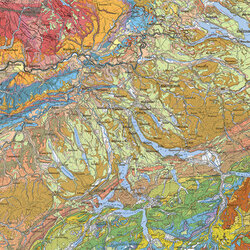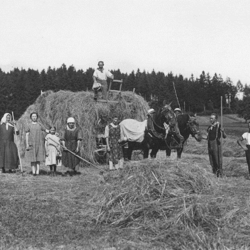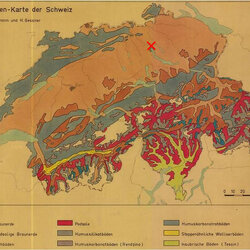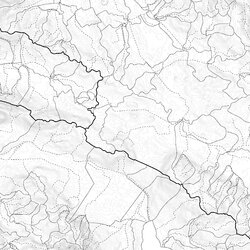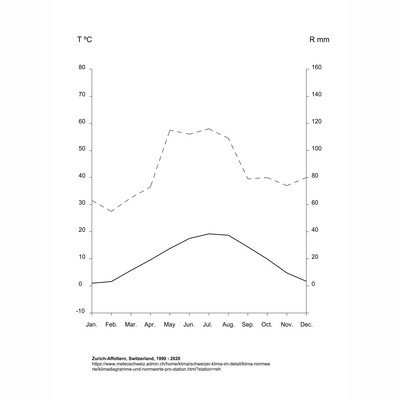
Climate
According to the Köppen-Geiger classification, Zürich has a temperate and warm climate (Cfb, C = temperate, f = no dry season, b = warm summer). This condition is characterized by four distinct seasons and significant precipitation throughout the year. There is no summer drought, even the driest month still has high amounts of precipitation. On average, Zurich has an annual temperature of 9.8 °C and a yearly precipitation volume of 1022 mm (see fig. 1).
However, if we look at annual conditions rather than the average climate, the picture looks somewhat different. 2001 was a very wet year with a total rainfall of 1422 mm (see fig. 2). By contrast, 2003 was very dry with a total rainfall of only 750 mm. There was even a dry period at the beginning of spring when less rain fell than evaporated due to the heat (see fig. 3). These rather extreme conditions of longer-lasting weather patterns with heavier precipitation events and hotter and longer dry periods might accelerate in the future. Using the climate scenario RCP8.5 (simulations without climate protection measures) from the Swiss National Centre for Climate Services, we can draw a Gaussen diagram for Zürich in the year 2085. Although the data mainly for precipitation is different from today, the relationship between precipitation and temperature remains the same without major dry periods (see fig. 4).
Here you can see the live weather in Zurich, recorded by a nearby open-source weather station of the Canton of Zurich. The slideshow below shows the garden in different seasons, from June 2023 (Summer), October 2023 (fall), December 2023 (winter) to April 2024 (spring).








